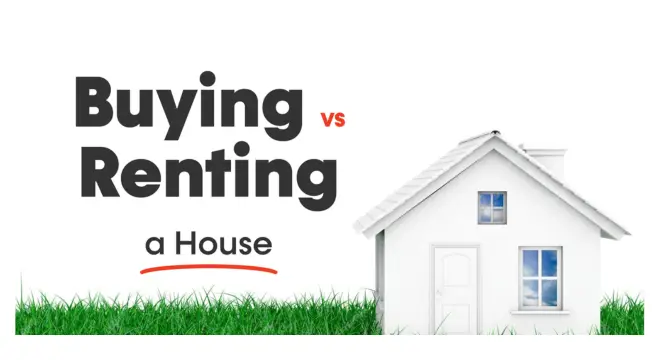Property Taxes Tripled — What It Means for Homeowners in 2025
I still remember the first time I read about the Priebe family in Florida — their property taxes jumped from $15,000 to a jaw-dropping $91,000 after some home renovations. No, they didn’t buy a luxury mansion overnight. They just improved what they already had. And suddenly, they were hit with a tax bill that felt more like a punishment than a property assessment.
If you’re a homeowner, that story probably made your stomach drop too. Because deep down, you know this isn’t just about one unlucky family. It’s about a system that’s quietly rigged to penalize you for trying to make your home better.
What most people don’t realize is this: the minute you renovate — even modestly — your property can get reassessed. And that reassessment? It often doesn’t reflect market reality. It reflects bureaucratic math that can blow up your finances overnight.
In the Priebe case, they added about 1,200 square feet and a new pool. But instead of a fair revaluation, their home was reclassified as a new construction — triggering a full reset of their tax cap protections. Suddenly, they weren’t just paying for the upgrade. They were paying for the entire market’s appreciation.
This isn’t an isolated event. Property owners across the U.S. — from Florida to Illinois to Texas — are sharing similar stories. Renovate your kitchen, add a room, build a deck… and boom. The tax bill triples.
The emotional toll is real. You’re not just blindsided — you’re betrayed. You played by the rules. You invested in your home. And now the rules are changing after you signed the check.
So the real question becomes: How do you protect yourself before it’s too late?
The Hidden Triggers: What Can Cause Your Property Taxes to Spike
Major Renovations and Their Impact
You probably think adding a room or upgrading your kitchen is just improving your space. But for tax assessors, even small changes can send a signal: this home is now worth more — a lot more.
In a report of Realtor, adding square footage and a pool in Priebe family led to their house being treated as brand-new construction. That reclassification erased their tax protections and opened the floodgates for a massive reassessment. Their taxes didn’t just rise — they exploded.
Here’s what most people don’t know: Local tax codes often treat additions or structural changes as reasons to reset the value of your property. Even cosmetic upgrades can raise red flags during a field visit.
If you’re planning a renovation, especially anything requiring permits, check in advance how it could affect your tax status. It’s not just what you build — it’s what the county thinks it’s worth.
Neighborhood Developments and Market Trends
Your home value doesn’t exist in a vacuum. If the homes around you are selling for more, or there’s new construction driving up demand, your property might be revalued even if you’ve changed nothing.
Tax assessors often use “comps” (comparable properties nearby) to justify raising your home’s assessed value. So if three homes down the street sold high, your tax could quietly go up next cycle.
This is especially common in fast-growing areas where investors and developers are active. Suddenly, your 20-year-old house is being compared to a brand-new build down the block — and you pay the price.
Tip: Keep an eye on real estate trends in your neighborhood. If values are climbing, brace yourself. The tax bill usually follows a year or two later.
Administrative Errors and Misclassifications
Sometimes, the spike isn’t your fault — it’s the system making a mistake.
Across the U.S., counties have misclassified homes, inflated square footage, or even taxed homeowners for features that don’t exist. In Cook County alone, more than 240,000 property tax bills were flagged as incorrect in 2024.
Check your property record card. Look for mistakes: wrong lot size, extra bathrooms, basement that doesn’t exist? These errors can cost you thousands — and most people never bother to verify.
If something looks off, you have every right to file a correction request or formal appeal.
Have you had a reassessment surprise — or caught an error on your tax bill? Tell your story in the comments. It could save someone else thousands.
Prevention is Better Than Cure: Steps to Avoid Unwanted Tax Surprises

Let’s be real — once a massive tax bill hits your mailbox, you’re already playing catch-up. That’s why it’s smarter to stay ahead of it. The good news? Most tax shocks can be prevented or at least softened — but only if you act before the damage is done.
Consult Before You Renovate
I get it — when you’re planning a renovation, you’re thinking about layout, budget, maybe even resale value. What most homeowners don’t think about is how a simple upgrade can trigger a total property tax reassessment.
Before you knock down a wall or add that new bedroom, talk to a local real estate tax expert or property appraiser. Ask them straight-up:
“If I do this, will it affect my taxes — and by how much?”
In many counties, building permits get reported directly to the tax assessor’s office. That’s often how reassessments begin. You might just want a bigger kitchen — they see it as a brand-new home.
Pro tip: Some improvements (like energy efficiency upgrades or roofing) might be exempt in your area. Know what’s taxable and what isn’t.
Understand Local Tax Laws and Exemptions
Every state — and sometimes every county — has its own tax rules. In Florida, for example, you lose certain protections (like the Save Our Homes cap) if your home is considered “new construction.” In California, Prop 13 limits increases unless you sell or significantly change the property. But in states like Texas or Illinois? All bets are off.
Most people only learn these rules after they’re hit with a new bill.
Take the time to read your state’s property tax code or speak to someone at your local assessor’s office. There might be exemptions for seniors, veterans, or primary residences — but you usually have to apply for them. They’re not automatic.
Regularly Review Your Property Tax Assessment
Don’t just toss that assessment notice when it shows up. Open it. Read it. Compare it to last year’s. Look for spikes in “assessed value” or “market value.”
You should also compare your property details with what’s listed on the assessor’s site. If they say your house has four bathrooms and you only have two — that’s a fight worth picking.
Small errors can mean big tax increases. And guess what? Most homeowners never check.
Set a reminder to review your property assessment every year. You only get a limited window to dispute it, and once that deadline passes, your appeal rights are gone.
Taking Action: What to Do If You’re Hit with a Massive Tax Increase
So you open your mail and see a number you didn’t expect — maybe double or triple last year’s bill. Your stomach drops. You feel angry, helpless, maybe even panicked. But here’s the thing: you’re not powerless. There are clear, actionable steps you can take — if you move quickly.
Filing an Appeal: How and When
First, understand this: you have the right to challenge your property assessment. But you only have a short window — usually 20 to 45 days after receiving your notice.
Start by reviewing your assessment for errors:
- Is the square footage correct?
- Are they listing features your home doesn’t have?
- Is the market value way above recent sales in your area?
If something feels off, you can file a formal appeal with your county’s Value Adjustment Board or equivalent authority. In Florida, for example, you’ll need to submit Form DR-486.
Include:
- Recent comparable sales (you can get these from Zillow or your local MLS)
- Photos or contractor receipts
- Any proof that the assessor overestimated your home’s value
You don’t need a lawyer, but having a real estate agent or tax consultant in your corner can help — especially if your case is complex.
Don’t wait. Missing the deadline means you’ll be stuck paying the full amount, even if it’s wrong.
Seeking Legal Assistance
If the appeal process feels overwhelming, or if you’re dealing with a huge jump like the Priebe family, it may be worth bringing in a property tax attorney.
These professionals know how local tax boards work. They can spot technical loopholes, procedural errors, or violations of assessment caps that most people miss.
Yes, it’ll cost something — but if you’re facing a five-figure tax increase, it could be money well spent. Some firms even work on a contingency basis (they only get paid if they win your appeal).
Exploring Payment Plans and Relief Programs
Even if you can’t reduce the bill, you might be able to delay or soften the blow.
Most counties offer installment plans or hardship deferrals — especially for seniors, veterans, or those facing financial strain. You’ll need to apply, and it may come with some interest, but it’s better than going into default.
Also check if your state offers property tax rebates or refunds. In 2025, Florida proposed a $1,000 rebate for primary homeowners. Programs like these change frequently, so check your local tax authority’s website or call them directly.
Have you ever filed a property tax appeal? Was it worth it? Or are you wondering if you should try? Drop your questions or advice in the comments — let’s help each other through it.
Just like the Priebe family’s tax shock in Florida, Ant Middleton’s sold his residence points to a broader trend of homeowners rethinking their assets under financial pressure.
Voices from the Community: Real Stories and Reactions

You can read all the guides and official documents in the world, but sometimes the most valuable insights come from people who’ve actually lived it. Across Reddit, Facebook groups, and forums, homeowners are opening up about the emotional and financial shock of sudden property tax increases. And if there’s one thing they all share, it’s that they didn’t see it coming.
Reddit Users Share Their Experiences
In a recent Reddit thread on r/FirstTimeHomeBuyer, one user wrote:
“My taxes went up by 85% in one year. I thought it was a mistake. Turns out they reclassified my property after I added a sunroom. Nobody warned me. I’m screwed.”
Another post in r/PersonalFinance told the story of a couple in Texas who were hit with a $20K increase — not because they made changes, but because three houses nearby sold above market.
“We appealed and lost. The assessor said comps don’t lie. We’re looking into selling now — we can’t afford this.”
These aren’t isolated rants. They’re warnings. And they echo a bigger issue: a lot of property tax systems are opaque, outdated, and inconsistent — and the average homeowner is totally unprepared.
Expert Opinions and Advice
Tax experts and real estate attorneys are sounding alarms too. In a YouTube segment titled “Florida’s Hidden Tax Trap”, one Florida-based tax consultant explained how even “minor” renovations can trigger full reassessments under loopholes in county codes. He said:
“Most people assume that taxes rise slowly with the market. But one trigger — like a permit or a neighborhood sale — can give the assessor legal ground to reset your value. That’s where it gets dangerous.”
Even financial analysts at Tax Foundation warn that property tax relief programs are unevenly applied and often poorly communicated — meaning many qualified homeowners never claim benefits they’re entitled to.
Have you read or lived through a story like this? Know someone who got hit with a massive tax bill? Share it here. Real talk from real people is what saves others from walking into the same trap.
Navigating the Future: Policy Changes and What They Mean for You
If the stories sound bad now, the future of property taxes might get even messier — unless something changes. Across the U.S., lawmakers are waking up to the fact that property taxes are no longer predictable or fair for many homeowners. But what does that mean for you right now?
Recent Legislative Developments
In Florida, Governor Ron DeSantis recently proposed a $1,000 property tax rebate for primary homeowners — a move aimed at easing the blow for families blindsided by post-renovation spikes.
Meanwhile, in states like Connecticut and Illinois, rising education costs, shrinking tax bases, and aging infrastructure are putting pressure on local governments — and that means higher property taxes for everyday homeowners.
According to a Tax Foundation report, many states are exploring long-term relief solutions — but actual reform is slow. Some counties are testing caps on annual increases, while others are proposing hardship deferrals and income-based scaling. Still, much of it depends on local politics, and most homeowners never hear about these options unless they go digging.
Advocating for Fair Taxation
Let’s be blunt — if homeowners stay silent, nothing changes.
Local tax boards, county assessors, and state legislators rarely hear directly from the people impacted by reassessments. If you’ve been hit with an unfair tax bill or seen neighbors forced out due to rising rates, your story needs to be heard.
Start local. Attend town hall meetings. Submit public comments. Ask your elected reps what they’re doing about inconsistent tax practices. Organize with neighbors, especially in areas seeing major gentrification or development shifts.
And if you’re in a state with property tax reform bills under debate — speak up. Laws don’t change unless there’s noise.
Disclaimer: This article is for informational purposes only and does not constitute legal or financial advice. Property tax laws vary by state and municipality—always consult with a licensed professional in your area. We do not guarantee outcomes from appeals or policy changes.


